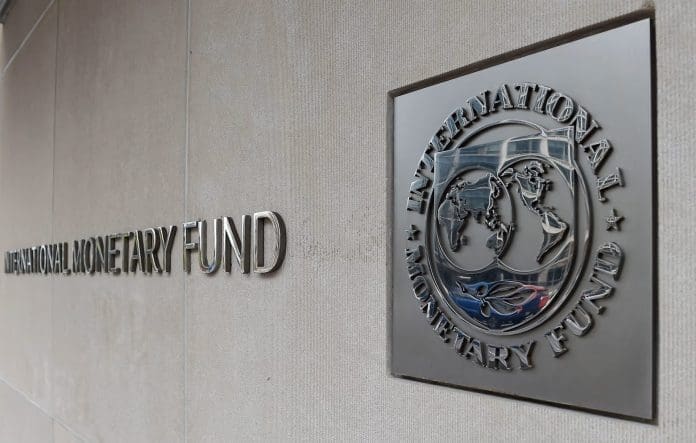The International Monetary Fund (IMF) has warned that South Korea’s economic growth faces mounting pressure from political uncertainty and global trade tensions, urging the government to implement urgent structural reforms to unlock future growth potential and achieve its ambitious 3 percent growth target.
An IMF team led by Mission Chief Rahul Anand concluded its Article IV Consultation with Korean authorities on September 24, 2025, finding that while inflation remains near the 2 percent target, economic growth has decelerated significantly. The assessment comes amid a stark reality check for Asia’s fourth-largest economy, which has seen its growth trajectory severely dampened by multiple internal and external challenges.
South Korea’s government cut its 2025 economic growth forecast in half from earlier expectations, projecting the economy will expand just 0.9 percent this year despite tens of billions of dollars in extra spending and interest-rate cuts. This dramatic revision reflects the severity of challenges facing the Korean economy and represents a significant departure from historical growth patterns.
The IMF projects GDP growth will rebound to 1.8 percent in 2026, supported by accommodative fiscal and monetary policies, stronger domestic demand, and robust global demand for semiconductors. However, this recovery timeline assumes successful implementation of policy measures and resolution of current uncertainties.
Political turbulence has significantly clouded South Korea’s economic outlook, with GDP declining in the first quarter of 2025 at a negative 0.8 percent rate (annualized) from the fourth quarter of 2024. This contraction underscores the immediate impact of political instability on economic performance and investor confidence.
Anand noted that South Korea’s policy response has been appropriate so far, with monetary easing and fiscal measures cushioning short-term growth impacts. However, he emphasized that achieving the government’s 3 percent growth target would require advancing long-delayed structural reforms to raise productivity, tackle demographic headwinds, and improve capital allocation efficiency.
The mission chief highlighted the critical importance of revitalizing domestic demand and diversifying Korea’s export structure for more resilient growth. Key reform priorities include household deleveraging, comprehensive labor market reforms, and expanding service exports, alongside strategic investments in artificial intelligence and innovation capabilities.
Korea’s growth trajectory shows a concerning downward trend, dropping from 4.6 percent in 2021 to 2.7 percent in 2022, approximately 1.4 percent in 2023, and just 2.0 percent in 2024, with projections for 2025 sitting around 1 percent. This represents a stark decline from the 2-2.5 percent typical in the previous decade.
The IMF welcomed Korea’s new Economic Growth Strategy, which emphasizes artificial intelligence adoption, digital transformation initiatives, and boosting service exports. The mission also praised ongoing corporate governance and foreign exchange market reforms, stating they could help attract long-term investment and reduce the persistent “Korea discount” in financial markets.
The Bank of Korea (BOK) has indicated that the weaker-than-expected GDP performance increases the likelihood that the economy will fall short of the central bank’s full-year GDP growth forecast of 1.5 percent for 2025, potentially prompting the resumption of the monetary easing cycle.
On fiscal policy, the IMF recommended that once growth stabilizes, the government should return to consolidation measures to create fiscal space for addressing long-term pressures from an aging population. Critical priorities include pension system reforms, improved revenue mobilization strategies, and enhanced expenditure efficiency measures.
The Fund emphasized that adopting a credible medium-term fiscal framework would strengthen fiscal sustainability while providing clarity for market participants and investors. This framework becomes increasingly important as Korea faces demographic challenges and rising social expenditure demands.
Employment growth projections reflect demographic shifts and modest economic expansion, with the number of employed persons expected to slow from 160,000 in 2024 to 150,000 in 2025 and 110,000 in 2026. These labor market dynamics add complexity to economic recovery efforts.
The IMF team further urged continued vigilance in the financial sector, specifically pointing to the need to curb risky household loan growth and address vulnerabilities in real estate project financing. These financial stability concerns require careful monitoring as monetary policy remains accommodative.
Foreign exchange policy recommendations included maintaining limited interventions, with the IMF stressing that such actions should remain focused on preventing disorderly market conditions rather than targeting specific exchange rate levels.
The Organisation for Economic Co-operation and Development (OECD) has warned that growth could be even weaker if there are additional increases in trade barriers and policy uncertainty, with inflationary pressures potentially stronger than expected. This external assessment reinforces IMF concerns about Korea’s vulnerability to global economic developments.
Despite significant headwinds, the IMF acknowledged Korea’s fundamental strengths, including strong institutions, robust external demand for semiconductors, and emerging opportunities in artificial intelligence applications. These advantages provide a foundation for potential recovery, but realizing this potential requires decisive policy action.
The semiconductor sector remains a bright spot for Korea’s export prospects, with global demand for advanced chips supporting the country’s technological competitiveness. However, over-reliance on this sector highlights the urgent need for economic diversification.
Innovation investments, particularly in artificial intelligence and digital technologies, represent crucial opportunities for Korea to maintain its competitive edge while addressing productivity challenges. Success in these areas could help offset demographic pressures and support long-term growth sustainability.
The mission concluded by expressing appreciation for Korean authorities and stakeholders’ productive discussions, excellent support, and generous hospitality during the consultation process. However, the underlying message remains clear: without decisive structural reforms, Korea’s growth risks remain tilted to the downside.
The IMF’s assessment reflects broader challenges facing advanced Asian economies struggling with demographic transitions, political uncertainties, and changing global trade dynamics. Korea’s response to these challenges will likely influence regional economic stability and serve as a benchmark for similar economies navigating comparable transitions.
